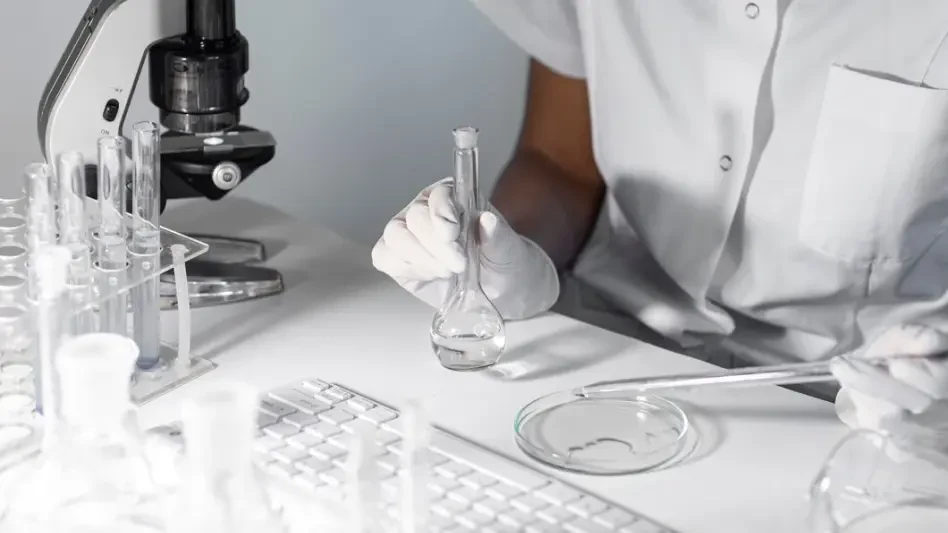In a remarkable stride toward advancing public health standards, Ethiopia has recently been recognized for achieving the World Health Organization (WHO) Maturity Level 3 (ML3) in its medicines regulatory system, a prestigious benchmark that signifies robust oversight and quality assurance in healthcare. This accomplishment, celebrated by the Africa Centres for Disease Control and Prevention (Africa CDC), underscores Ethiopia’s unwavering commitment to ensuring the safety, efficacy, and accessibility of medical products for its citizens. The Ethiopian Food and Drug Authority (EFDA), under the guidance of the Ministry of Health, has demonstrated exceptional dedication to meeting international standards, placing the nation among an elite group of African countries with advanced regulatory frameworks. This milestone not only elevates Ethiopia’s standing in global health but also serves as an inspiring example for other nations striving to strengthen their health systems. The recognition highlights a pivotal moment for the continent, reflecting a shared vision of health security and equitable access to quality care.
A Milestone in Regulatory Excellence
Ethiopia’s attainment of WHO Maturity Level 3 is a testament to years of strategic planning, investment, and policy reforms aimed at bolstering the nation’s health infrastructure. Administered by the EFDA, the regulatory system now meets rigorous international benchmarks for monitoring the safety and quality of medicines, ensuring that only effective and reliable products reach the market. This achievement positions Ethiopia alongside other African leaders such as Egypt, Ghana, and Nigeria, which have also reached this level of regulatory maturity. The significance of this milestone extends beyond national borders, as it contributes to a broader continental effort to standardize health regulations and protect populations from substandard medical products. By achieving ML3, Ethiopia has proven its capacity to handle complex regulatory challenges, from product approvals to post-market surveillance, thereby fostering greater public trust in the healthcare system and paving the way for improved health outcomes across diverse communities.
This recognition also reflects Ethiopia’s alignment with global health priorities, particularly in the context of ensuring equitable access to safe medical products amid growing health challenges. The WHO ML3 status signifies a stable and well-functioning regulatory authority capable of delivering essential functions with consistency and precision, a fact that has not gone unnoticed by regional health bodies. The Africa CDC has lauded Ethiopia for setting a high standard that other African Union Member States can emulate, emphasizing the critical role of such systems in addressing public health crises and supporting local pharmaceutical industries. Furthermore, this achievement strengthens Ethiopia’s position to engage in collaborative initiatives, such as mutual recognition of regulatory decisions with other leading African regulators. This step forward is crucial for reducing redundancies in drug approval processes and accelerating access to life-saving treatments, ultimately benefiting millions across the region with faster and more reliable healthcare solutions.
Strengthening Continental Health Security
The Africa CDC’s commendation of Ethiopia highlights the broader implications of this achievement for continental health security and regulatory collaboration. Director General H.E. Dr. Jean Kaseya has praised the EFDA for its exemplary performance, noting that a trusted regulatory framework is indispensable for advancing public health goals and fostering innovation in pharmaceutical manufacturing. Ethiopia’s success aligns seamlessly with the African Union’s Agenda 2063, which envisions a future where all citizens have access to high-quality health products through integrated and harmonized systems. By joining a Memorandum of Understanding (MoU) among Africa’s top medicines regulators, Ethiopia is poised to play a pivotal role in promoting regulatory efficiency and shared decision-making across the continent. This collaborative approach not only enhances health security but also supports initiatives like the African Pooled Procurement Mechanism (APPM), which aims to streamline the acquisition of medical supplies for Member States.
Beyond national pride, Ethiopia’s regulatory milestone serves as a catalyst for inspiring other African nations to prioritize capacity-building and strive for international standards in health governance. The growing emphasis on regulatory excellence across the continent is evident, with Ethiopia’s achievement acting as a beacon of possibility for countries facing similar challenges in resource allocation and technical expertise. Strong regulatory systems are vital for combating the proliferation of counterfeit medicines, a persistent threat to public health in many regions, and for supporting the growth of local pharmaceutical production. Ethiopia’s progress demonstrates that with dedicated leadership and strategic partnerships, African nations can overcome systemic barriers and contribute to a collective vision of health sovereignty. This development also underscores the importance of sustained investment in training, technology, and infrastructure to ensure that regulatory bodies remain agile and responsive to emerging health needs over the coming years.
Building a Legacy of Health Innovation
Reflecting on Ethiopia’s journey to WHO Maturity Level 3, it is clear that the nation laid a strong foundation through persistent efforts to enhance public health safeguards over recent years. The collaboration between the Ministry of Health and the EFDA proved instrumental in navigating the complexities of regulatory reform, ultimately achieving a system that earned global recognition for its reliability and impact. The Africa CDC’s acknowledgment underscored how Ethiopia’s dedication had not only protected its own population but also contributed to a stronger, more unified African health landscape. This moment marked a significant chapter in the country’s history, showcasing what could be accomplished with vision and resolve.
Looking ahead, the focus should shift to sustaining this progress by investing in continuous improvement and fostering regional partnerships that amplify the impact of regulatory advancements. Ethiopia has the opportunity to lead by example, mentoring other nations in building resilient health systems while advocating for policies that prioritize innovation in pharmaceutical manufacturing. Strengthening ties through frameworks like the MoU can accelerate the harmonization of standards, ensuring that safe and effective medicines reach those in need without delay. As Africa continues to navigate complex health challenges, Ethiopia’s experience offers valuable lessons on the power of commitment and collaboration, paving the way for a healthier and more prosperous future across the continent.









